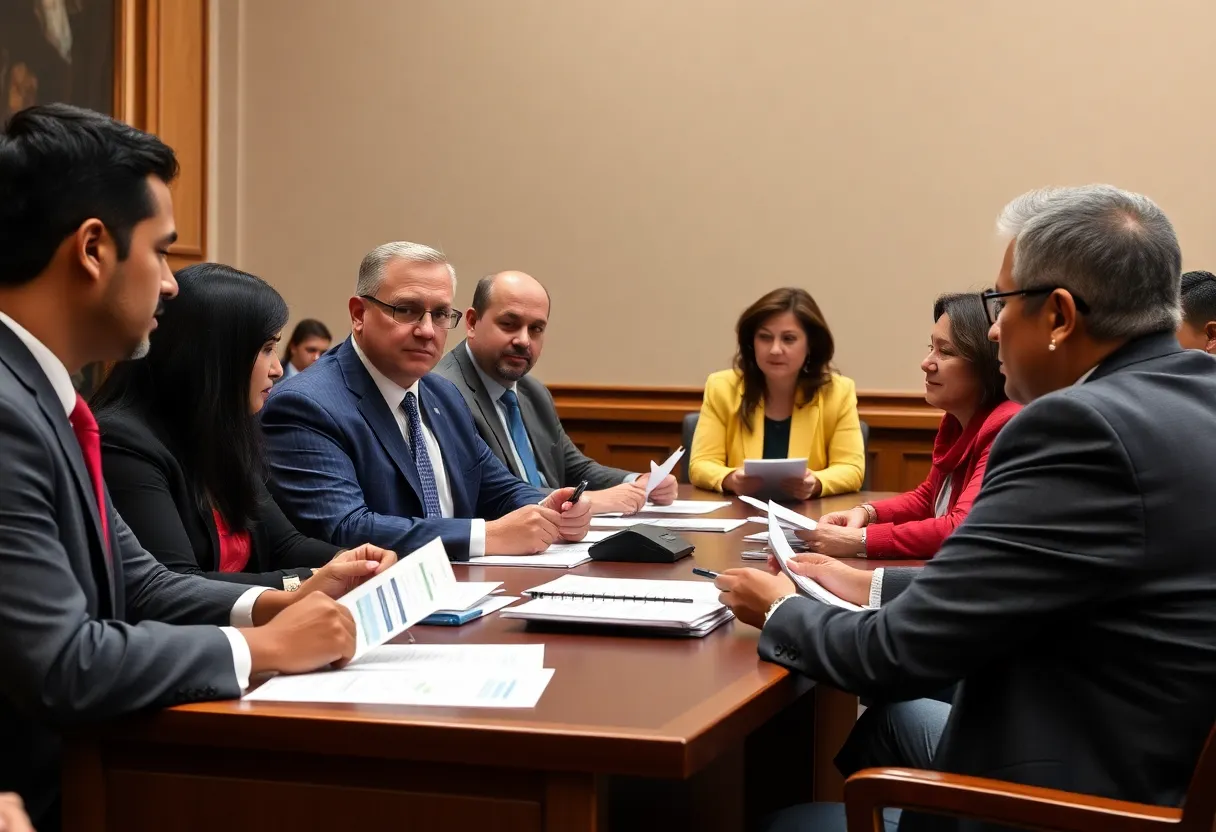News Summary
Michigan lawmakers are increasingly concerned about non-disclosure agreements (NDAs) with the Michigan Economic Development Corporation (MEDC). These NDAs prevent them from disclosing important information regarding taxpayer-funded projects to constituents. Representative Matt Hall’s struggle to terminate his NDA highlights a growing demand for transparency. With nearly one in five lawmakers bound by these agreements, proposed legislation aims to ban NDAs related to legislative duties, showcasing a bipartisan push for accountability and openness in government dealings.
Michigan Lawmakers Call for More Transparency in the Face of Secrecy Agreements
In the bustling heart of Michigan, concerns over transparency in government dealings are coming to a head. State lawmakers have found themselves in a tricky situation involving non-disclosure agreements (NDAs) with the Michigan Economic Development Corporation (MEDC), leading to calls for change in how legislative information is shared with the public.
Cloaked in Confidentiality
Many lawmakers have been required to keep essential information under wraps for extended periods, even if they are attempting to break free from these NDAs. Recent records obtained via a Freedom of Information Act request have shed light on the MEDC’s strategy of sharing details about potential projects with legislators while demanding that they keep this information confidential.
This situation raises some eyebrows, especially when elected officials are unable to share crucial details about taxpayer-funded projects with their constituents. How can voters stay informed if their representatives cannot discuss what is happening in their communities?
Matt Hall’s Dilemma
Take the case of Representative Matt Hall, who along with his staff, attempted to terminate his NDA with the MEDC earlier this month. Frustratingly, Hall learned that a recent agreement he signed actually included a two-year extension of confidentiality for information he previously obtained. This means that anything covered under the original NDA he had signed in 2021 would remain confidential until 2026.
Hall signed the NDA primarily to get the scoop about a significant Ford Motor Co. development project that would impact his district. However, he later expressed his confusion about updates and additional projects added to his agreement without his consent.
A Need for Legislative Reform
Hall has since reached out to the MEDC’s CEO, expressing his bewilderment at the unilateral changes to his NDA. He is advocating for reforms that would enhance transparency in the legislative process, a move that resonates with many who believe that constituents deserve more insight into public expenditure.
In fact, the number of lawmakers bound by NDAs has skyrocketed under Governor Gretchen Whitmer’s administration. As of November 2023, nearly one in five Michigan lawmakers has signed such agreements, prompting bipartisan concern and proposed legislation aimed at putting a stop to this practice.
Bills Introduced to Champion Accountability
Two House members have stepped up, introducing bills aimed at banning lawmakers from entering NDAs that pertain to their legislative duties. They emphasize the need for politicians to remain accountable and maintain open lines of communication with the people they serve. The push for these bills has gained momentum, with over 20 co-sponsors coming on board, showcasing a growing legislative resistance against secrecy.
Economic Development Under the Microscope
The current NDAs restrict lawmakers from revealing essential project details, which can include anything from job creation numbers to investment figures and even the identities of companies involved. Often, they find themselves in the dark about the specifics of projects that they are obligated to keep confidential, raising more questions than answers.
Critics argue that these agreements exemplify a worrying trend toward diminishing transparency in Michigan’s government, especially when taxpayer money is at stake. The public has a right to know how their hard-earned dollars are being utilized and what developments are being planned in their communities.
A Shift Towards Openness?
On the flip side, MEDC officials defend the usage of NDAs as a necessary tool for protecting sensitive financial data and facilitating significant investment opportunities. They argue that without these safeguarding measures, the state could be at a disadvantage in attracting crucial business investments.
Despite the technicalities and justifications, discussions in the Michigan legislature are now hinting at a possible shift towards greater transparency in how government officials engage with economic development projects. As voters keep a close eye on their representatives, it seems the call for accountability is ever-growing.
As Michigan heads full throttle toward the 2024 election landscape, the clarity, or lack thereof, surrounding NDAs could play a pivotal role in shaping future relations between lawmakers and the constituents they serve.
Deeper Dive: News & Info About This Topic
- Detroit News – Michigan Economic Development Corporation
- Lansing City Pulse – Bipartisan Michigan Lawmakers
- Detroit Free Press – Michigan Lawmakers Confidentiality Agreements
- Wikipedia: Non-disclosure agreement
- Google Search: Michigan Economic Development Corporation








